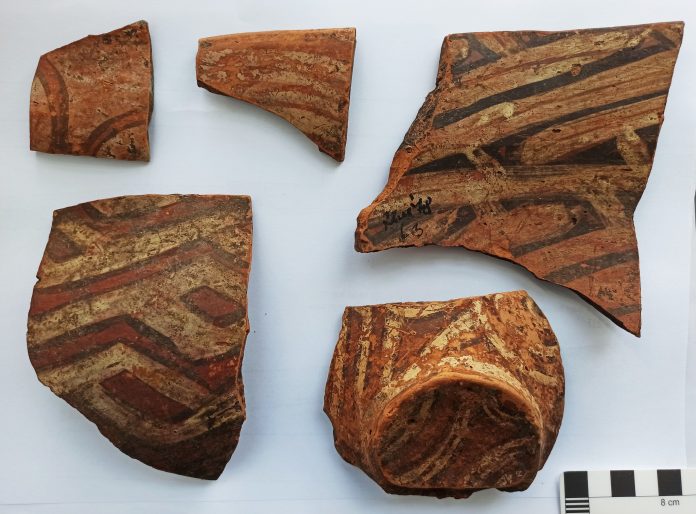Experts of the Neamt National Museum Complex (CMN) conducted archaeological research in March, alongside scientists from Poland and Germany, as part of joint projects in this field.
Scientific researcher Dr. Vasile Diaconu, expert archaeologist of the CMN Neamt, told AGERPRES that invasive and non-invasive field research was carried out at neo-Eneolithic sites.
In a first stage, archaeologist Dr. Maciej Debiec, from the University of Rzeszów, together with Dr. Vasile Diaconu, carried out a restricted archaeological research, at a site located on the territory of the village of Topolita, with the aim of identifying some vestiges attributed to the Neolithic.
„The archaeological investigation provided a series of interesting materials, which confirm the presence of the Linear Pottery culture (6th millennium BC) in this area, which is particularly important, given that this cultural phenomenon is specific to Central Europe. Also on this occasion, interesting artifacts specific to the Precucuteni culture were discovered,” Dr. Vasile Diaconu told AGERPRES.
Another very important project, which has been going on for almost a decade, is the one carried out with the support of experts from the University of Erlangen-Nurnberg.
The team coordinated by Dr Doris Mischka and Dr Carsten Mischka also carried out geophysical scans in several Eneolithic sites this spring, in order to obtain a clearer picture of the structure of these settlements, but also to better relate them to the habitat in which they existed.
The German archaeologist Dr. Constantin Preoteasa, together with the two German professors and a team of students from the University of Erlangen-Nürnberg, carried out an intense activity of monitoring, recording and quantifying the archaeological remains existing in several sites near Piatra-Neamt and Targu Neamt.
„Because this project also had an important didactic component, some of the German students processed the archaeological remains recovered from the field at the Museum of History and Ethnography in Targu Neamt, thus obtaining very conclusive statistical data. The interest of German and Polish specialists for the archaeological remains of Neamt is honourable and confirms that the archaeological research carried out under the auspices of the Neamt National Museum Complex has a significant impact on the international scientific community,” added Dr. Vasile Diaconu.
The research carried out in Neamt county is based on collaboration protocols between the Neamt National Museum and the universities of Rzeszów and Erlangen.
AGERPRES




